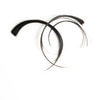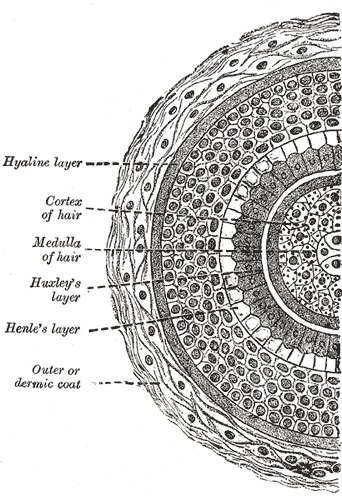|
8/23/2016 0 Comments Why Humidity Makes Your Hair CurlHumid air causes hydrogen bonds to form between water molecules and the proteins in your hair, triggering curls and frizz By Joseph Stromberg - smithsonian.com If you have long hair, you probably don’t need to look up a weather report to get an idea of how much humidity’s in the air: You can simply grab a fistful of hair and see how it feels. Human hair is extremely sensitive to humidity—so much that some hygrometers (devices that indicate humidity) use a hair as the measuring mechanism, because it changes in length based on the amount of moisture in the air. Straight hair goes wavy. If you have curly hair, humidity turns it frizzy or even curlier. Taming the frizz has become a mega industry, with different hair smoothing serums promising to “transform” and nourish hair “without weighing hair down.” But just why does humidity have this strange effect on human hair? Hair’s chemical structure, it turns out, makes it unusually susceptible to changes in the amount of hydrogen present in the air, which is directly linked to humidity. Most of a hair’s bulk is made up of bundles of long keratin proteins, represented as the middle layer of black dots tightly packed together in the cross-section below. Bundles of keratin proteins (the middle layer of black dots above) are susceptible to changing shape on a humid day. Image from Gray’s Anatomy
These keratin proteins can be chemically bonded together in two different ways. Molecules on neighboring keratin strands can form a disulfide bond, in which two sulfur atoms are covalently bonded together. This type of bond is permanent—it’s responsible for the hair’s strength—and isn’t affected by the level of humidity in the air. But the other type of connection that can form between adjacent keratin proteins, a hydrogen bond, is much weaker and temporary, with hydrogen bonds breaking and new ones forming each time your hair gets wet and dries again. (This is the reason why, if your hair dries in one shape, it tends to remain in roughly that same shape over time.) Hydrogen bonds occur when molecules on neighboring keratin strands each form a weak attraction with the same water molecule, thereby indirectly bonding the two keratin proteins together. Because humid air has much higher numbers of water molecules than dry air, a given strand of hair can form much higher numbers of hydrogen bonds on a humid day. When many such bonds are formed between the keratin proteins in a strand of hair, it causes the hair to fold back on itself at the molecular level at a greater rate. On the macro level, this means that naturally curly hair as a whole becomes curlier or frizzier due to humidity. As an analogy, imagine the metal coil of a spring. If you straighten and dry your hair, it’ll be like the metal spring, completely straightened out into a rod. But if it’s a humid day, and your hair is prone to curling, water molecules will steadily be absorbed and incorporated into hydrogen bonds, inevitably pulling the metal rod back into a coiled shape. Hair by Brian - The Beauty Blog
0 Comments
Your comment will be posted after it is approved.
Leave a Reply. |
Hair by BrianMy name is Brian and I help people confidently take on the world. CategoriesAll Advice Announcement Awards Balayage Barbering Beach Waves Beauty News Book Now Brazilian Treatment Clients Cool Facts COVID 19 Health COVID 19 Update Curlies EGift Card Films Follically Challenged Gossip Grooming Hair Care Haircolor Haircut Hair Facts Hair History Hair Loss Hair Styling Hair Tips Hair Tools Health Health And Safety Healthy Hair Highlights Holidays Humor Mens Hair Men's Long Hair Newsletter Ombre Policies Procedures Press Release Previous Blog Privacy Policy Product Knowledge Product Reviews Promotions Read Your Labels Recommendations Reviews Scalp Health Science Services Smoothing Treatments Social Media Summer Hair Tips Textured Hair Thinning Hair Travel Tips Trending Wellness Womens Hair Archives
May 2025
|
|
Hey...
Your Mom Called! Book today! |
Sunday: 11am-5pm
Monday: 11am-6pm Tuesday: 10am - 6pm Wednesday: 10am - 6pm Thursday: By Appointment Friday: By Appointment Saturday: By Appointment |



 RSS Feed
RSS Feed